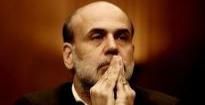Fed Halves Debit Card Fees
WASHINGTON — Fees paid by retailers to banks for debit card purchases, a $20 billion annual expense that has been the subject of a furious political battle over the last year, will be cut in half after the Federal Reserve voted Wednesday to cap the charges.
The cap was mandated last year in the Dodd-Frank financial regulation law, but the Fed action was far less draconian than bankers had feared. The new cap of 21 to 24 cents a transaction, down from an average of 44 cents before the law passed, is roughly double the 12 cents tentatively proposed by the Fed last December.
Consumers are unlikely to see any immediate change at the register because they do not pay the fees directly. But merchants have complained that as the cost of debit fees — a charge for processing payments — has risen in recent years, they have had to add it to the prices they charge. The new lower fees may eventually be reflected in lower retail prices for consumers or, most likely, in a slight slowing of price increases. But banks said the caps would not pay for the cost of operating their electronic debit card networks, and they have warned that their customers can expect higher fees for other banking services as a result.
In approving the lower fees, the Fed’s Board of Governors said there was no way of knowing what the effect of the new rules would be, although they will be watching the results closely.
“I think this is the best available solution that implements the will of Congress and makes good economic decisions,” Ben S. Bernanke, the Fed chairman, said in voting to approve the rule. The board voted 4 to 1 in favor, with Elizabeth A. Duke dissenting.


